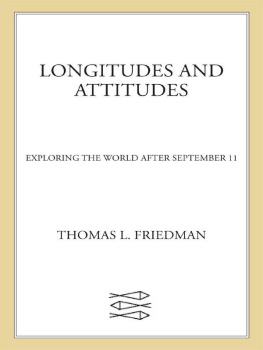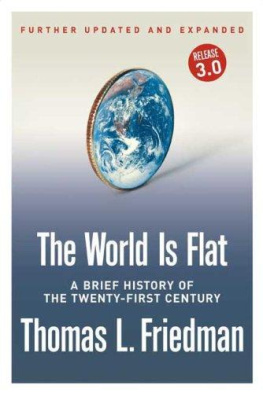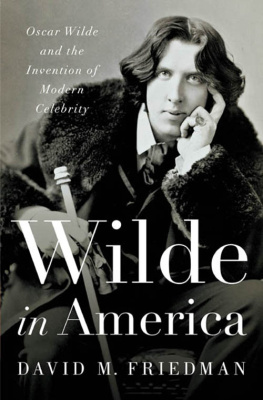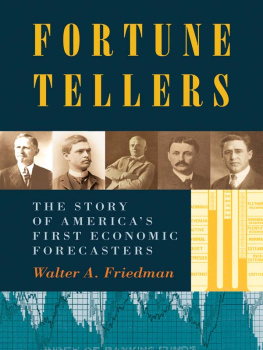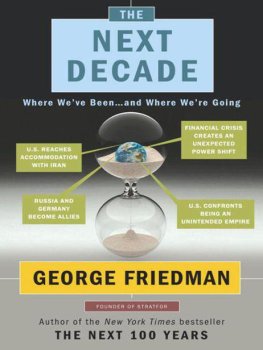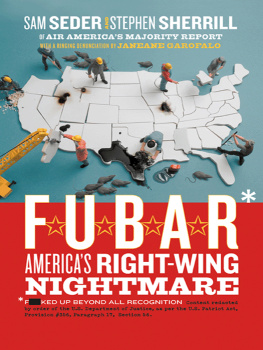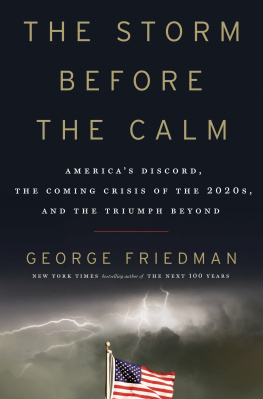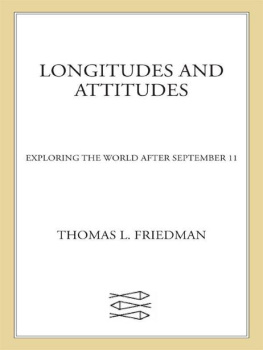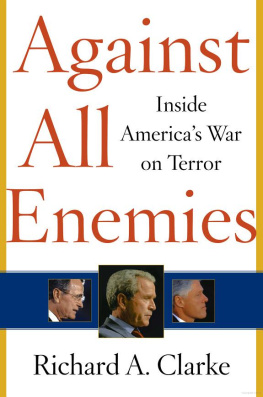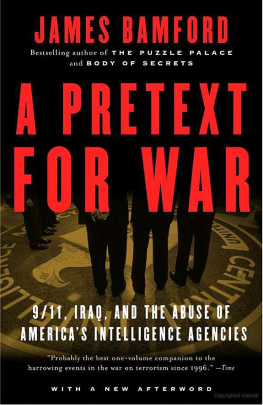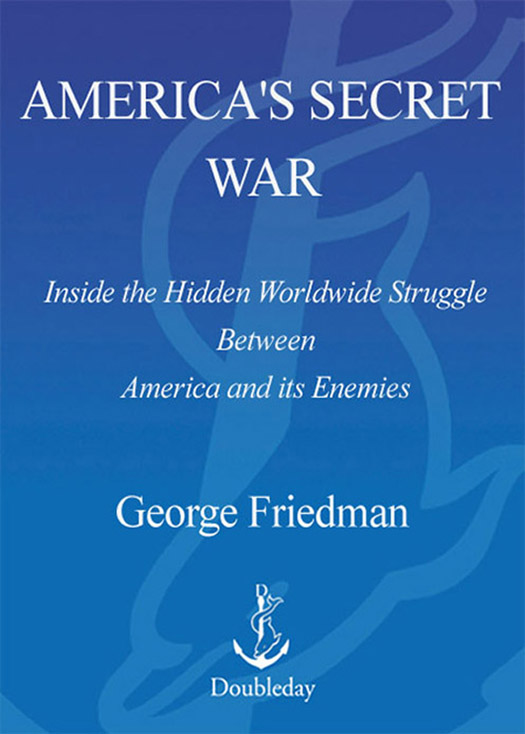
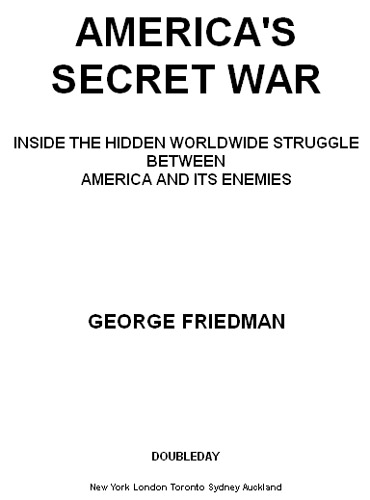
Contents
In Memory of
Matthew S. Baker
Preface
THE WAR THAT BEGAN on September 11, 2001, might be called the Fourth Global War, the U.S.-Jihadist War, the U.S.-Al Qaeda War, or the U.S.-Islamist War. Some would argue that it isn't a war at all but an isolated act of terrorism that has been manufactured into a war. Nothing tells us more about the extraordinarily ambiguous and divisive nature of the war than the fact that three years into it, we do not even have a name for it.
This book is called America's Secret War not only because so much of the war is hidden. It is the nature of war that each side must hide as much as can be hidden. The secrecy of this war goes deeper. More than in any other war I have studied, the true reasons for each side's actions are hidden from view. If I look at the war through the lens of public discourse, nothing makes very much sense. Actions seem unconnected to one another, leading nowhere, lacking meaning. In the words of Macbeth, it is a tale told by an idiot, full of sound and fury, signifying nothing.
That is not how I view the last three years. In retrospect, sometimes we can see that the apparent chaos actually had a clear if deep order to it, an order sometimes not even apparent to the actors who, having said their lines and done their deeds, shuffle off the stage, unaware of the full meaning of what has happened. But it is my belief as well that if one fully understands the motives and reasoning of the players, it is possible to understand events while they are happening, or even before. The key is to understand the actors as they understand themselves and to understand the forces that drive and constrain them even better than they understand them.
In a game of chess, it appears that there are many moves available. There seem to be twenty possible first moves, for example. In fact, there are perhaps six. The better you understand chess, the fewer options you have. You come to realize that most of the apparent moves are disastrous, and the good moves are limited. The better the players, the more predictable and understandable the game is, until that extraordinary moment when a brilliant player invents a new variation on an established theme.
Stratfor was created to study the global chess game through the prism of geopolitics. Geopolitics teaches the importance of place in the world. But it also teaches that while humans make history, they do so from a menu dictated by the reality in which they find themselves. Stratfor's purpose is to study the global chessboard and explain the moves that are being made and predict the moves that must be made by each side. We are aware that there are many who view the world as Macbeth does. We do not. Our understanding may be imperfect, but it is not nonexistent.
There are two basic themes to this book. The first is that the events we have passed through form a coherent pattern and that the political actors who have shaped the world are rationalif not necessarily moral or decentactors. Americans tend to think of its leaders as fools and knaves and of its enemies as psychotic. This seems to comfort us. This book argues that while America's leaders might be knaves, they are not fools, and that while our enemies might have utterly different moral values that are repugnant to us, they are far from insane. All around us, Stratfor sees excellent chess players, not always recognizing the unintended consequences of their moves, certainly not always making the right move, but, in the broad sweep of events, engaged in actions that are explicable.
The closer you stand to an object, the less sense it makes. The closer you watch this war, the more incoherent it becomes. This book uses Stratfor's geopolitical method to step back from the events and see the order hidden within.
The second basic theme is that this is not a passionate book. To the extent possible, it intends to be cold and clinical. Nothing has become cheaper than passionate discourse. This book deliberately treats Al Qaeda and Osama bin Laden as what they are, skilled and dedicated men with a clear vision of how they want the world to look. It treats George W. Bush the same way. I understand that both views will be vigorously attacked by those who would wish to make each into monsters or idiots. They are neither. They are leaders, playing chess with the lives of others and the fate of the world. Fools and psychotics do not accumulate and hold such power.
This does not mean that I am indifferent to the outcome of the war. I am an American, and my fate is intimately bound to that of my country. Apart from that, I regard the moral principles of my republic as superior to those of other regimes. I understand that Osama bin Laden believes the same of his dream of Caliphate. That makes us enemies. Nevertheless, walking around in a fog of rage will not make me or anyone else more effective. Passion has been praised too much. It leads to loud noises and incoherence.
The title of this book is America's Secret War. I am focusing on the idea of secret war not only in the sense that there are many secrets being kept from us in this warwho would expect otherwise? Rather, the secret I am referring to is the one that is sitting there right out in the open: the clear intentions, rational behavior, and inevitable errors in judgment and unintended consequences that have created the pattern for the past three years.
Writing a book in the middle of a war is not easy. There is a core problem: Between July 5, 2004, when I write these words, and October 5, 2004, when this book will be published, three long and dangerous months will elapse. Therefore, in something that is not common, an additional chapter of America's Secret War will be written to close the gap just before publication date and posted to the Internet. This may have been done before with a book, but I am unaware of it.
I would like to thank Stratfor as an organization and as a collection of colleagues. While I founded it, Stratfor has long since transcended me. It is a collective effort involving many people. The concepts that were developed, the intelligence that was gathered, the principles of analysis contained here were developed by Stratfor. This is a Stratfor book. I thank all of our friends and our readersparticularly our harshest critics among themfor making us better.
There are some colleagues I must thank individually. I would like to thank Don Kuykendall, who supported Stratfor when others thought him mad, and David Hoppmann, who is now trying to bring order out of ferment. This book would not have been written without them. My gratitude and admiration for Jim Hornfischer, my literary agent, is boundless. I want to thank my dear friend Leonard Hochberg for reminding me of the fundamental principles that ought to drive this book. Among others who gave of their time and thought, I would like to thank Rodger Baker, Fred Burton, Kamran Bokhari, Les Janka, Anthony Sullivan, and Peter Zeihan. One could not have enjoyed a more cantankerously divided group. They ranged from Islamic activists to those who hunted them. I also want to thank Jason Kaufman, my editor, who introduced me to the novel idea that nonfiction should be terse and paced. I apologize in advance for failing to be a good student.
Above all others, I want to thank my beloved wife, Meredith, without whom this, like so much else in my life, would never have been realized. And of course our four children, whose unfolding lives were the ever-present backdrop to this book.
Next page


